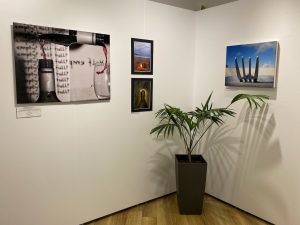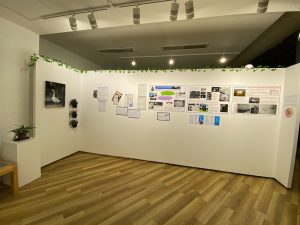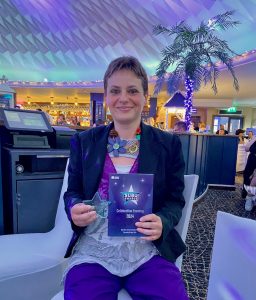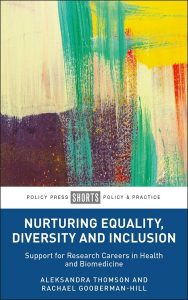Sarah, who is a BU MSc Student studying Clinical and Developmental Neuropsychology, presented research from her MSc dissertation on Friday 7th June at The BPS Division of Health Psychology Annual Conference 2024.
Supervised by Dr Emily Arden-Close, Sarah’s dissertation delved into the daily experiences of autistic individuals with hypermobile Ehlers-Danlos syndrome (hEDS). This was lived-experience research as Sarah has both conditions herself, and therefore engaging with her study participants carried huge emotional relevance and importance to her personally.
The research found that traits commonly associated with autism, such as the need for routine and structure, significantly aid in planning daily activities and managing EDS symptoms. However, participants also highlighted the psychological challenges of having to adjust meticulously planned routines due to acute pain and fatigue flare-ups. This qualitative research underscores the complexity and challenges faced by those living with both hEDS and autism.
Sarah was diagnosed with hypermobile Ehlers-Danlos syndrome (a rarely diagnosed genetic connective tissue disorder) in February 2020. This diagnosis came after fifteen years of physical symptoms which were misdiagnosed as Emotionally Unstable Personality Disorder. Sarah has an extremely rare co-condition called Median arcuate ligament syndrome (MALS) and has studied for her Masters degree on a prescription liquid-only diet, unable to eat food.
Sarah was diagnosed with autism in May 2022, after realising she is autistic thanks to the lectures on autism on her MSc course at BU!
Acknowledging the transformative impact of formal diagnosis on her life, Sarah has embraced lifestyle changes and effective self-management strategies for her hEDS and various co-morbidities.
Sarah sits as a patient expert in the EDS International Consortium, Psychiatric and Psychological Aspects Working Group, and Sarah presented her BMJ paper, “Help me trust you after my misdiagnosis,” at The EDS Global Learning Conference in Dublin last August.
Alongside being a student here, Sarah also works at BU as a Student Ambassador, Digitial Marketing Ambassador and a member of BU PIER (as a member of the public). Passionate about medical education and raising awareness of rare health conditions, Sarah regularly engages in public awareness, volunteering, and charity fundraising.
Influenced by her own health journey and navigating the complexities of the healthcare system, coupled with Complex PTSD from childhood trauma, Sarah has developed a keen interest in various aspects of the diagnostic journey.
In March 2024, Sarah’s art exhibition “Seeking Meaning in Diagnosis” was held in the Atrium Gallery at BU. Sarah recently won the SUBU Award in the “Outstanding Contribution to Equality” category.



As well as being a patient expert, photographer and blogger Sarah is also a keen yogi and she was featured in Hotpod Yoga’s Move with Purpose Campaign, discussing her late-autism diagnosis.
To learn more about Sarah’s inspirational diagnostic journey – visit her website.












 Second NIHR MIHERC meeting in Bournemouth this week
Second NIHR MIHERC meeting in Bournemouth this week Dr. Ashraf cited on ‘Modest Fashion’ in The Guardian
Dr. Ashraf cited on ‘Modest Fashion’ in The Guardian NIHR-funded research launches website
NIHR-funded research launches website MSCA Postdoctoral Fellowships 2025 Call
MSCA Postdoctoral Fellowships 2025 Call ERC Advanced Grant 2025 Webinar
ERC Advanced Grant 2025 Webinar Horizon Europe Work Programme 2025 Published
Horizon Europe Work Programme 2025 Published Horizon Europe 2025 Work Programme pre-Published
Horizon Europe 2025 Work Programme pre-Published Update on UKRO services
Update on UKRO services European research project exploring use of ‘virtual twins’ to better manage metabolic associated fatty liver disease
European research project exploring use of ‘virtual twins’ to better manage metabolic associated fatty liver disease